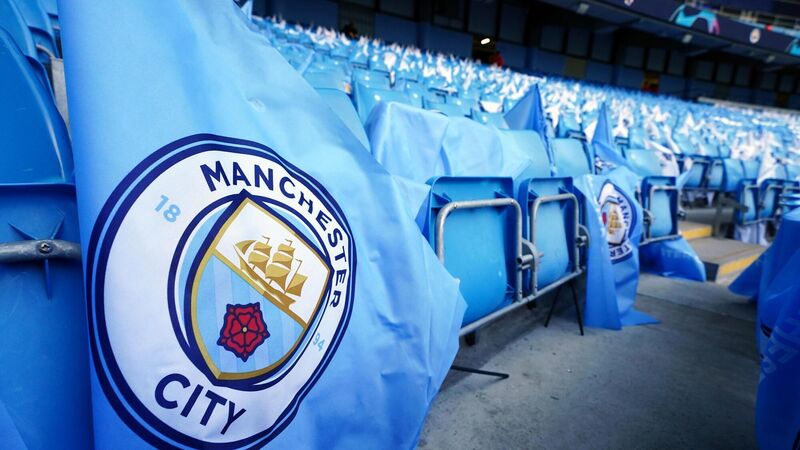Ian Mallon: Premier League prosecution of City looks a little naive

FFP: A general view of flags at the Etihad Stadium, Manchester. Manchester City have been referred to an independent commission by the Premier League over alleged breaches of its financial rules. Pic: Martin Rickett/PA Wire.
A FORMER Manchester City financial advisor has called on the Premier League to articulate the details of the particular charges it is bringing against the club, instead of allowing speculation and guesswork to dominate proceedings.
Stefan Borson said that while “the inference is about as serious as it gets” – that the club’s board, finance team and sponsors all conspired dishonestly, over many years, to conceal and mislead the Premier League, Uefa and auditors – then the league must say that.









